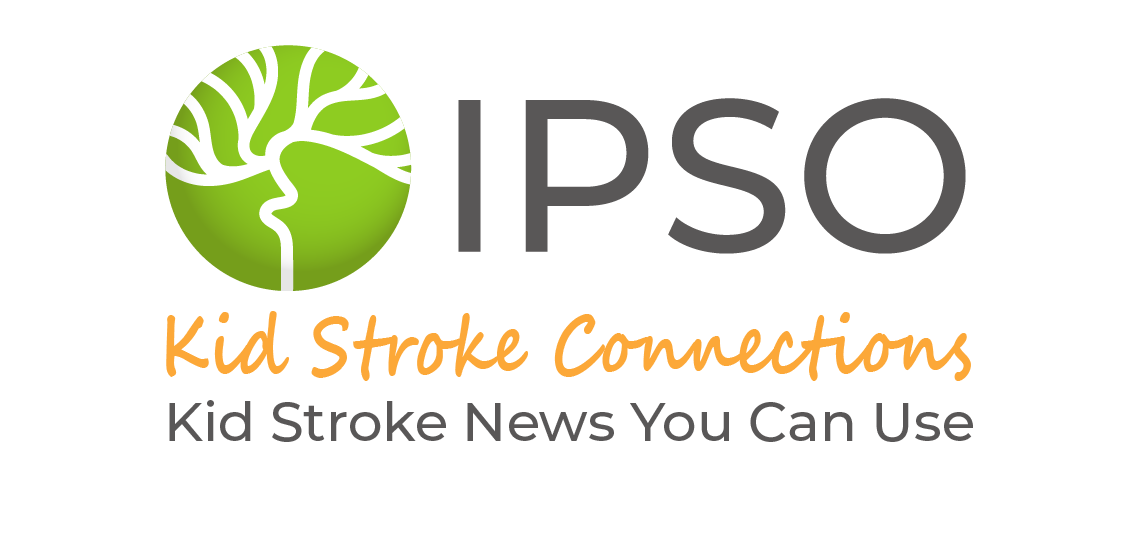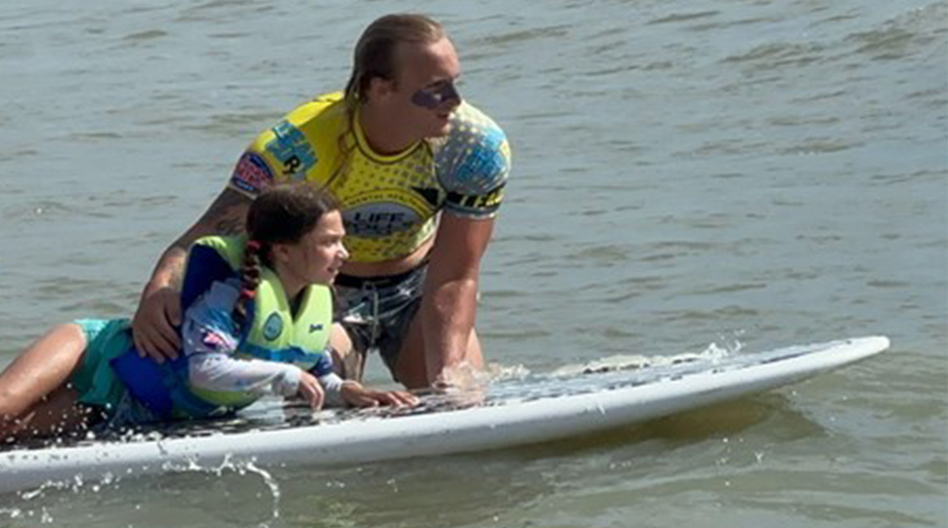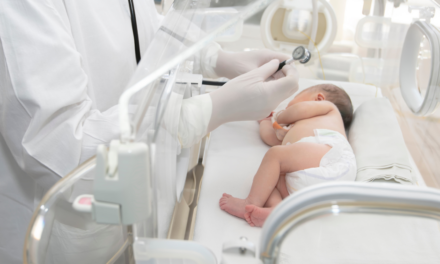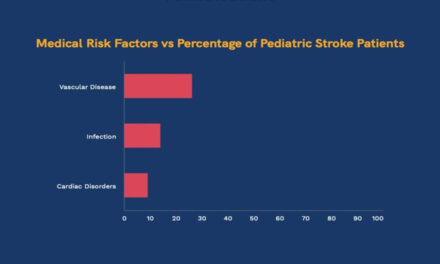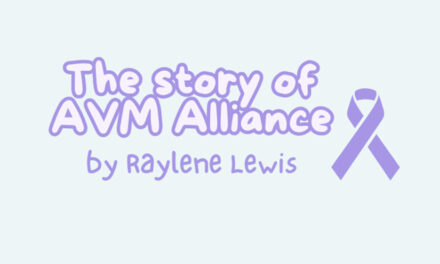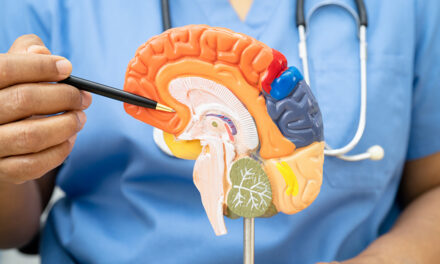This article was inspired by an eight-year-old who shares her story of her journey with co-morbidities secondary to stroke. Adela says, “I am okay that I had a stroke, but I don’t want to have seizures anymore.”
“Comorbidities” are medical conditions that you have in addition to a primary diagnosis. You may have one or more comorbidity. “Morbidity” is a medical term that refers to the state of having a specific disease or condition. So, adding “co” in front of this word means two or more conditions occur together.
Adela has been enrolled in 8 years of therapy to address a multitude of delays and co-morbidities related to her stroke including: language delays, cognitive function, executive function, memory, attention deficit hyperactivity disorder (ADHD), self-harm, anxiety, self-regulation, feeding, malnutrition, constipation, aspiration pneumonia, learning disabilities, panic attacks, lack of self-worth, depression, motor weakness of the right half of her body, and, most impactful to her, seizures that have been hard to control despite medications.
Adela’s rehabilitation journey began at only 8 weeks old in Charlotte, NC. She was enrolled in early intervention through the county for occupational, physical, and speech therapy to address her global motor and speech delays. Immediately, her parents had to self teach the language of the therapy world as well as go through dismissing some therapy that was a waste of time until finding the most suitable therapists for their daughter’s special needs. The family has a strong network internally, but there were still feelings of isolation. Fortunately, the mom and dad discovered NIH studies for Adela and enrolled her in Baby CHAMP (Children with Hemiparesis Arm and Movement project). She also reached out to the International Alliance for Pediatric Stroke (IAPS). The founder, Mary Kay Ballasiotes and her daughter Michelle, who is a perinatal stroke survivor, came to visit them to share resources with the family. They referred them to local occupational therapy and a constraint induced movement therapy camp, which is where I met them. The family continued to weigh the benefits of working full time as a mom during all these rehabilitation appointments, doctors’ appointments, medications while Adela continued to face challenges to progress secondary to the multiple comorbidities, specifically the seizures, the fatigue, and the lack of sleep. Not to mention, the impact this has on her younger sibling, Connor. He was a witness to a lot of work and scary times when Adela would seize.
Adela’s mother, Kristal was interviewed by this therapist to prepare the article. She has graciously volunteered to share her encouraging words to other parents.
Working as a critical care registered nurse in an adult cardiac/surgical intensive care for 10 years, and 5 years as a Family Nurse Practitioner in primary care, I thought I was fairly knowledgeable (medically speaking), especially regarding cardiac conditions. However, nothing I learned from my work experience or 7 years of college could prepare someone for the unexpected. I had a normal pregnancy, took no medications, induced at 42 weeks, rather easy labor, Apgar scores were 6 and 9, went home after 2 days with my daughter, Adela, all was well, at least for 4 weeks. At 4 weeks old, Adela started projectile vomiting; I took her to the pediatrician several times in a 2-week span, and was misdiagnosed with acid reflux. At 6 weeks old, Adela was back at her pediatrician for a sick visit, the only symptom was projectile vomiting and crying a lot, likely due to being hungry. At her office visit, she started having rapid breathing, an immediate x-ray was ordered of her abdomen and chest. Within minutes, her pediatrician knew something was seriously wrong; he said her heart is “very enlarged, and she needs emergency help ASAP.” I drove her to a level 1 pediatric trauma Emergency Room, only 15 minutes away. She was immediately evaluated by a large medical team because of her unstable vital signs. After hours of vast testing, including an echocardiogram performed by 3 different techs and saw 3 different cardiologists, it was concluded that Adela had a rare (approximately 1:300,000 live births) congenital heart defect called an anomalous left coronary artery originating from the pulmonary artery (ALCAPA), which means the heart muscles are supplied poorly oxygenated blood making them weaker. Treatment was emergent surgical repair. Since her heart was so weak, she was considered to be in end-stage heart failure, with her heart pump functioning only to 5-10%, instead of 50-55% normally. Surgery was a success, however, due to the weakness of her heart function, she was unable to be weaned off the heart-lung machine, therefore placed on extracorporeal membrane oxygenation (ECMO) which is like a natural lung is an artificial gas exchanger. Adela was able to come off ECMO after 2 days. At 7 weeks old, she was able to be weaned off the ventilator and have her breathing tube removed. Immediately, I noticed abnormal eye movements appeared and pointed that out to the medical team in her room, it seemed I was the first to notice and knew something was terribly wrong. Once I got her medical team’s attention, a STAT Computed Tomography Scan (CT) of her head was ordered, which diagnosed a stroke in the blood vessels of her left brain. I had no idea kids could have strokes.
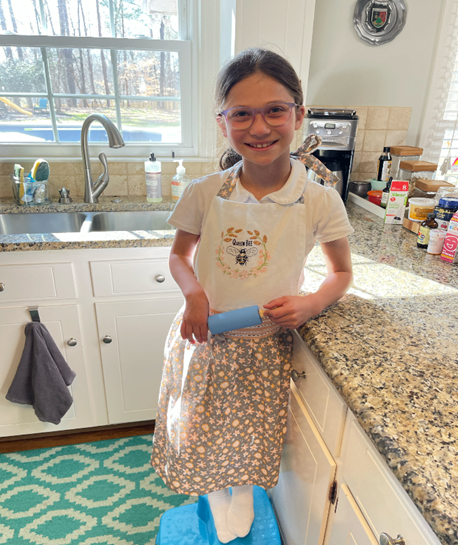
Adela’s stroke caused epilepsy and she was closely followed by an epileptologist (which is a doctor that specializes in seizures) since 7 weeks old. Since her stroke, she has been on multiple anti-seizure medications. Her seizures were unpredictable, she would be seizure free for 4-6 months and then have daily seizures for a week, it fluctuated. Adela’s seizures presented differently over time, from sudden extremity of her body jerking, abnormal eye movements, slurred speech, absence seizures (seizures with blank spells), and then finally subclinical seizures (that were only identified by a brain scan called an electroencephalogram.) Four of Adela’s seizures lasted over 1 hour. At one time, Adela followed with eight different medical doctors. On a routine neurology visit, I expressed concerns over Adela’s recent symptom, migraines. She rarely had headaches, but for over a month she was having migraines about 3 weekly. My concerns were dismissed and nothing was ordered or further discussed about this new symptom. So it was at this time, when Adela was 7 years old, I started researching the best hospitals for neurology care with the best outcomes. We decided to have a second opinion at a hospital in another state. After 4 months of various testing, it was recommended that Adela have her left side of her brain partially disconnected, called a left functional hemispherotomy (LFH), to control her seizures. This was the most difficult decision my husband and I had ever made, mostly because her language function after the surgery was in question. Despite having multiple investigations for mapping language in her brain, it was still unclear how much language function she would lose, if any, after her surgery. Also, this particular surgery would cause a permanent visual impairment that causes Adela to lose half of her central vision and her right peripheral vision. We took a giant leap of faith, and are so thankful we did! To date, Adela has not had another seizure!
Freedom from fear: Asking the right questions is so important, but how do you know what questions to ask? “As a parent, if you feel something is the matter with your child, something only you notice, then immediately discuss this with your child’s medical provider, if you feel dismissed about your concern, seek another opinion! There are knowledgeable, caring, supportive medical providers available. There are also a lot of support groups I would recommend parents to connect with. Follow your intuition, and don’t let anyone sway you otherwise! “
When it came time to make a decision about having brain surgery, Adela bravely said, “I want the doctor to cut my brain so I won’t have seizures anymore”. The team from her hospital chose to perform a left functional hemispherotomy (LFH) for Adela after a year of testing and investigation. The LFH is a surgical procedure to disconnect the outer portion (the cortex) of one half of the brain (hemisphere) from the other half and from the brainstem. It is used to isolate abnormal brain activity in one half of the brain in order to cure serious seizures.

There are no regrets of having a LFH. Adela is now the best version of herself, despite her new visual impairment, which she is adapting well to. She remains very talkative, thoughtful, a foodie, silly, and brave, but she has a new outlook on life. She now wants to learn about everything, she is at peace with herself, and the world around her. Her younger brother, Connor (age 6) and her are getting along seamlessly. She continues to be adventurous and wants to try new activities, such as adaptive surfing, field hockey, rock climbing, and most recently fencing. Adela was asked what regrets she had from surgery, she stated, “ my hair looks like a boy, and having an IV placed inside of my elbow for a week.” When asking Connor what his favorite state is, he said, “ Ohio because the doctors saved my sister’s life.”
Articles for Clinical Resources for Comorbidities secondary to perinatal/pediatric stroke:
- https://adc.bmj.com/content/103/10/930.abstract
- https://www.ahajournals.org/doi/full/10.1161/STROKEAHA.120.031893
- https://www.ahajournals.org/doi/full/10.1161/JAHA.115.003071
- https://www.chop.edu/centers-programs/pediatric-stroke-program/pediatric-stroke-research-publications
- https://journals.sagepub.com/doi/full/10.1177/0271678X18800589
- https://journals.sagepub.com/doi/abs/10.1177/0883073813491828
- https://www.ncbi.nlm.nih.gov/pmc/articles/PMC9044107/
- https://link.springer.com/article/10.1007/s11920-020-01195-8
- https://www.sciencedirect.com/science/article/abs/pii/S002234761100148X
- https://www.sciencedirect.com/science/article/abs/pii/S0887899416307330
- https://www.sciencedirect.com/science/article/abs/pii/S1525505020308969
- https://www.sciencedirect.com/science/article/abs/pii/S0022347607003265
- https://www.tandfonline.com/doi/abs/10.1080/87565641.2017.1353093
- https://www.tandfonline.com/doi/abs/10.1080/09297049.2014.969694
About the Author
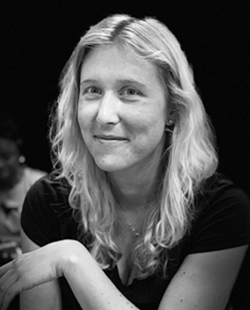
Kristal Bell
RN, FNP-C Charlotte, USA

Shelley Dean
OTD, OTR/L Founder/Owner of Crossway Pediatric Therapy and Academy Charlotte, USA
Dr. Dean has pioneered the treatment of pediatric stroke, hosting internationally attended constraint-induced movement therapy intensives. She serves on the board of the International Alliance for Pediatric Stroke and is a charter member of the International Pediatric Stroke Organization, contributing to research, clinical practice, and parent training in the field. She is also a mentor and educator, dedicated to advancing the knowledge and skills of future therapists.
Outside of her professional work, Dr. Dean enjoys reading, walking her dog, and spending time with her family in Charlotte, where she lives with her husband Doug and their blended family.
Medical Editors: Manish Parakh, MD
Junior Editor: Ingrid Votruba
